– We are a better country than that
Three internationals meet with the politican Katrine Robsøe, which has a fair chance of winning a seat in the Danish parliament. The internationals gave the politican a glanze into what it is like to move from abroad to Denmark.
– I want to reinvest in education, and I want a climate law, that makes us live up to the Paris agreement. And I do not want to make politics based on worst cases. We are a better country than that, says Katrine Robsøe, who runs for a seat at the Danish Parliament for the social liberal party “De Radikale”.
I do not want to make politics based on worst cases. We are a better country than that
Katrine Robsøe (R)
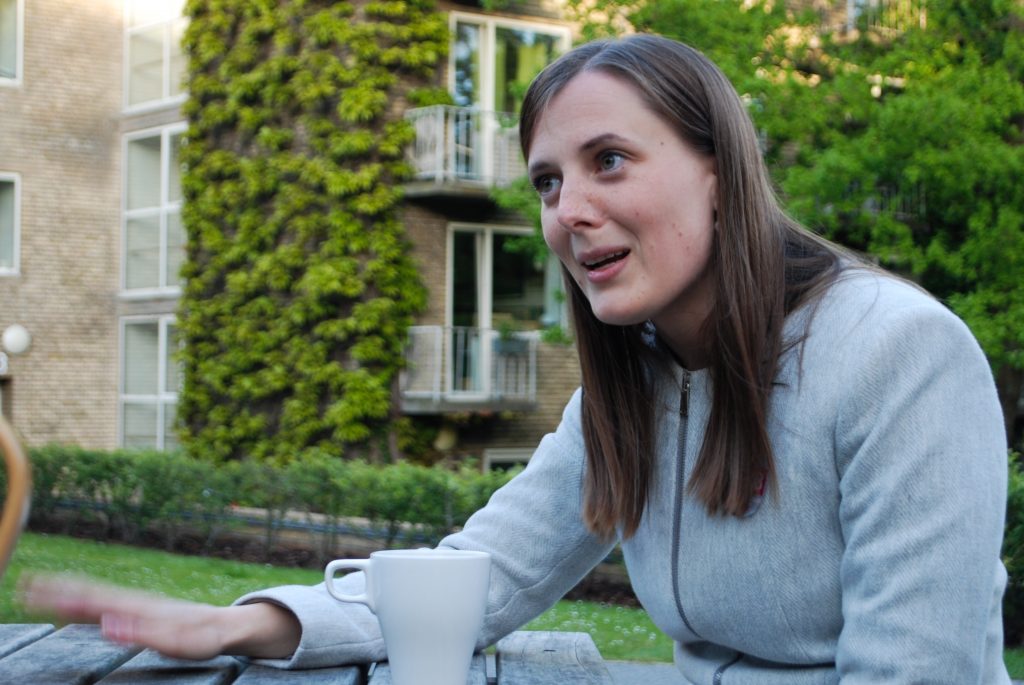
Like a home turf
HowtoDenmark meets her at Aarhus University, but it appears very much like a home turf for her. Her election posters hang from several lampposts and soon becomes obvious that she is ready for action. Her fellow party member Karen Melchior was elected for the EU parliament, and this has increased Katrine Robsøes chances to get elected since Karen Melchior also ran for the Danish Parliament.
The thee internationalists
The background:
434.000 of the adult population in Denmark are not eligible to vote at the parliamentary election.
This corresponds to 9,4% of the adult population.
We believe that in a including democracy it is important that this group is being heard!
The three international participants Kgosi Sekwati, Selma Vital and Houda Naji are also ready for action. Common for all three is that they have moved to Denmark from another country, they haven’t obtained Danish citizenship and therefore they are not eligible to vote at this election. They have plenty of opinions regarding the Danish society and on this fine spring evening they aired their opinions.
5 of the topics which were discussed:
- International students in Denmark
- The Danish health care system
- The climate changes
- The importance of learning Danish
- Tax deductions
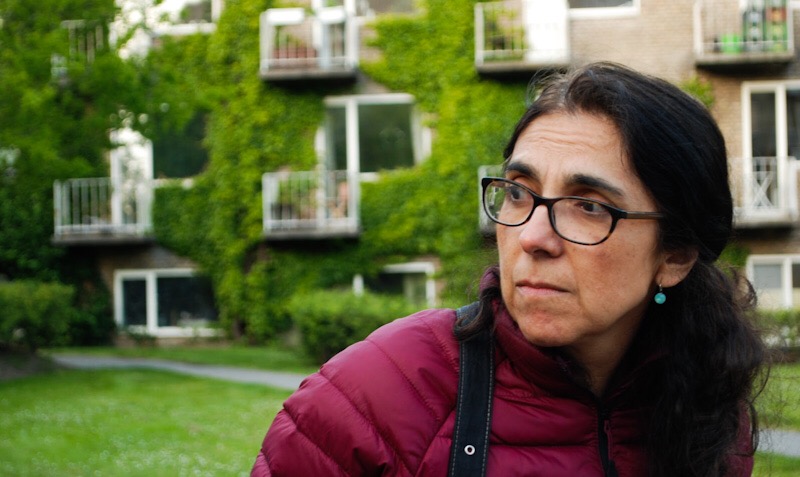
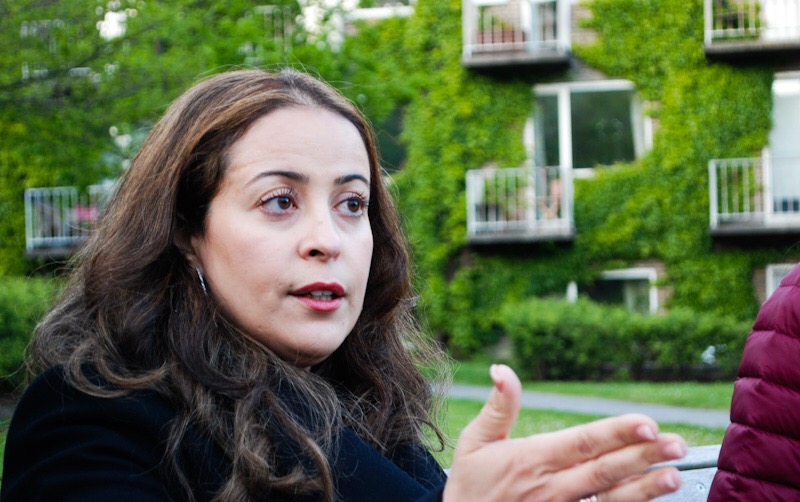
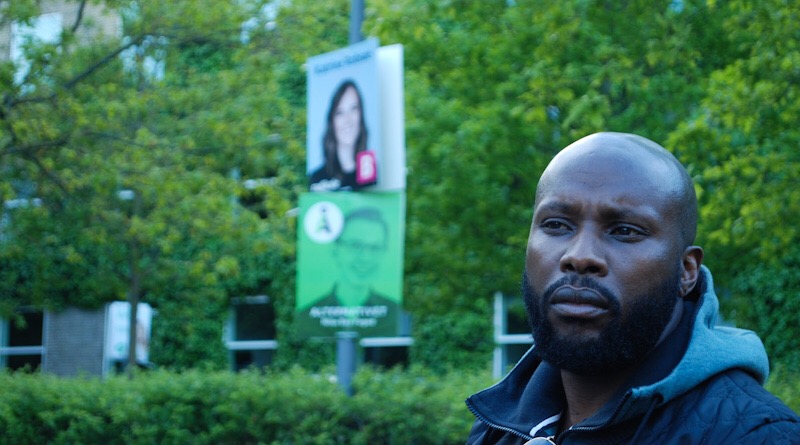
Tends to be generalizing
One of the things Katrine Robsøe underlines is that lawmaking in Denmark sometimes tense to be generalizing.
– And you shouldn’t put everyone in the same box. People come to Denmark for various reasons, she says.
The internationals that have joined the talk confirm this. They have their own story and their own thoughts and concerns.
– I often think a lot when I need to go to the doctor, because I feel like I am using the system. I have a PhD and want to contribute but can’t get a job, says Selma Vital
Learn more about Katrine Robsøe right here:
https://valg.radikale.dk/valg/folketingskandidater/katrine-robsoee/
(in Danish)
Climate changes and tax deductions
The consequences of the climate changes are one of the most important topics at the election. According to Katrine Robsøe Denmark needs to plant more trees and to take a close look at how things are done in the agricultural sector.
– And we need to make our buildings more energy efficient, so we don’t have to warm them up during the winter time as we do today, she says.
This brings another topic to the table. In Denmark you can get a tax deduction if you hire a trademan or a cleaning lady. Some, including Katrine Robsøe, thinks that is only makes sense, if the work which is done is making the building greener – is in favour of the climate. But this is not a condition to get the deduction as it is today.
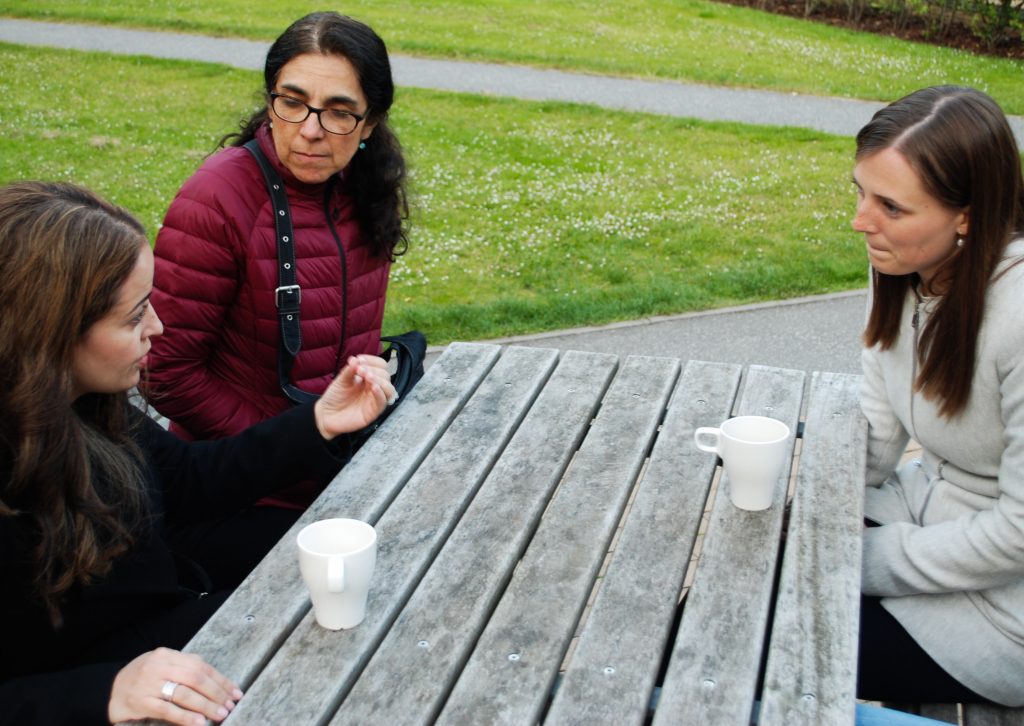
The five doctors
The three internationals have different experiences from the Danish health care system, which according to Katrine Robsøe is under pressure because medicine costs are going up. At the same time there is a lack of doctors.
Kgosi Sekwati used to work at a hospital. He tells how the doctors had to do a lot of paperwork.
– I agree, I learn Danish and, in my class at ”lærdansk” we had five doctors that couldn’t work because they need to speak fluent Danish. Why?, says Houda Naji
– I actually thinks it’s ok to ask the doctors to be able to speak to the patients, replies Katrine Robsø.
– You are 100 percent right, but everybody speaks English in Denmark, says Houda Naji.
– No, they don’t . I do and all of the young people do, but my grandparent’s wouldn’t understand a word, answers Katrine Robsøe.
To sow a seed
The Danish language as a topic is discussed more than one time this evening.
Katrine Robsøe underlines that she wants to make it easier for internationals to learn Danish as mastering Danish makes it so much easier to find a way into the Danish society.
One says that it is understandable that students which only are in Denmark for a short period of time are not offered Danish lessons. Simply because it might be a bad investment – they are leaving shortly after anyway. Katrine Robsøe disagrees. She thinks that offering Danish courses to exchange students is a way to sow a seed, because it might encourage the students to return to Denmark.
